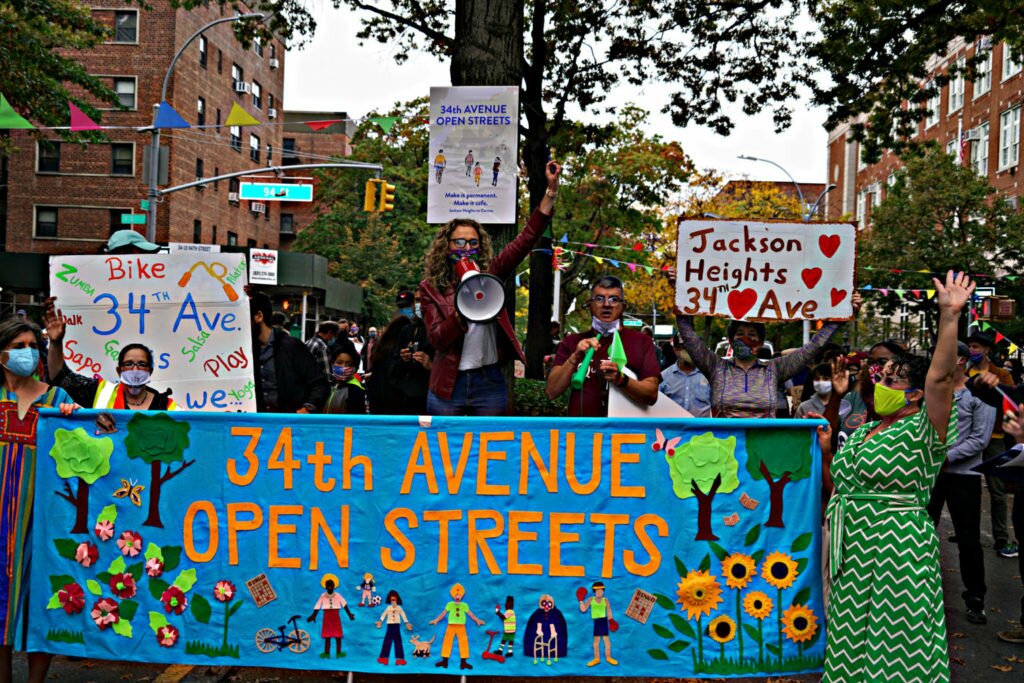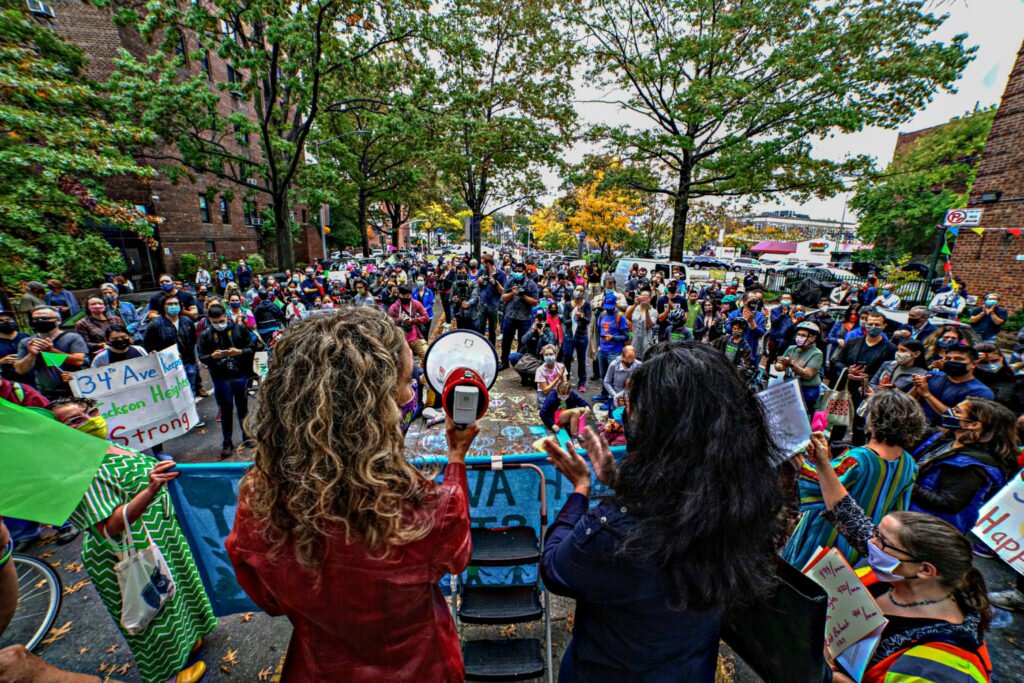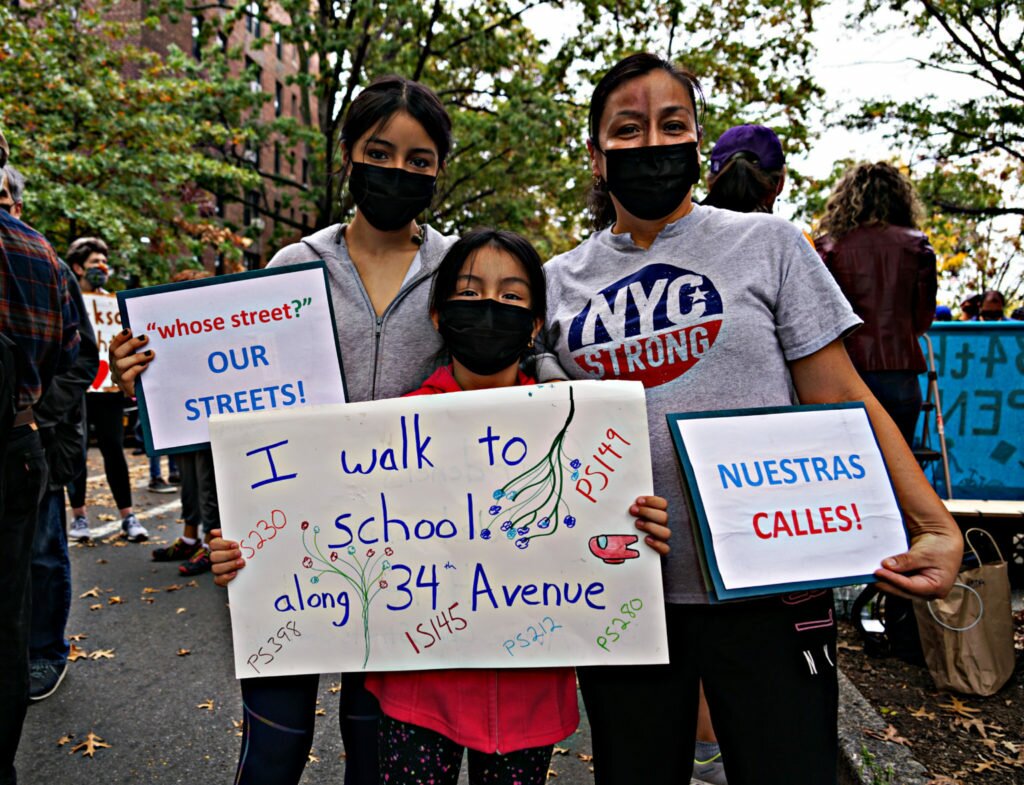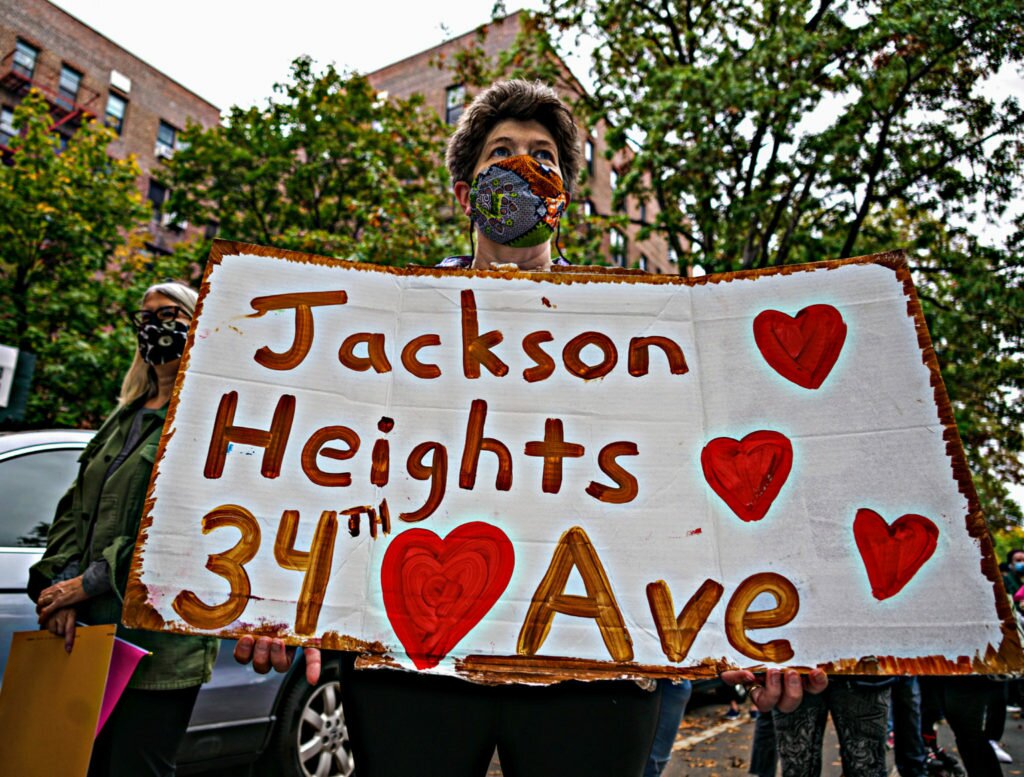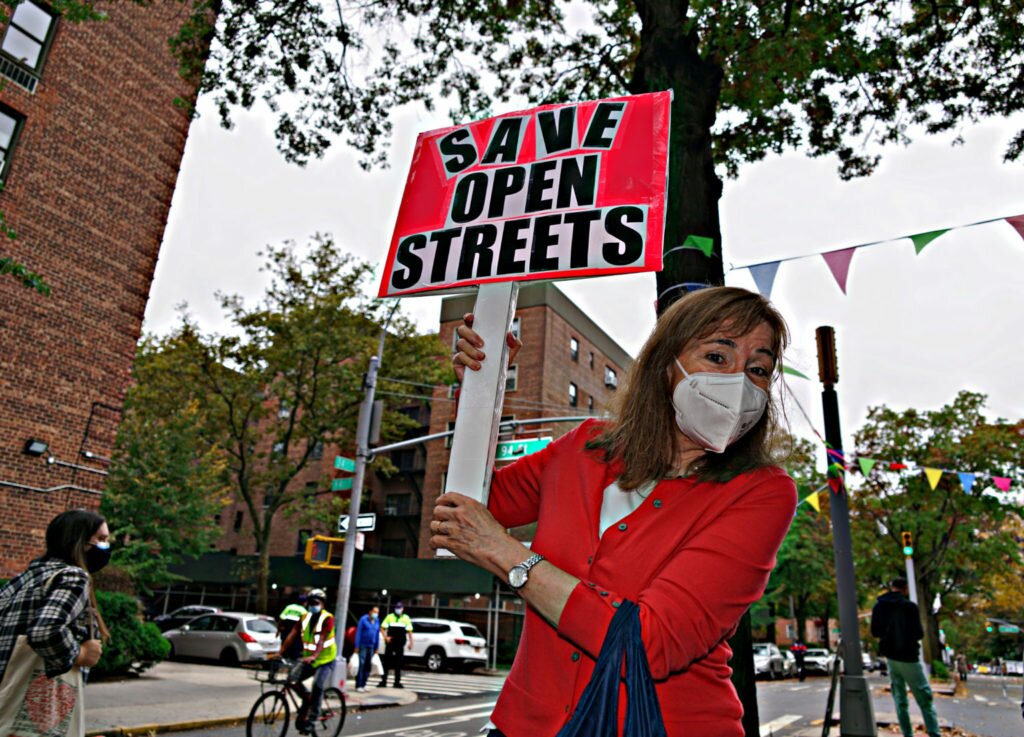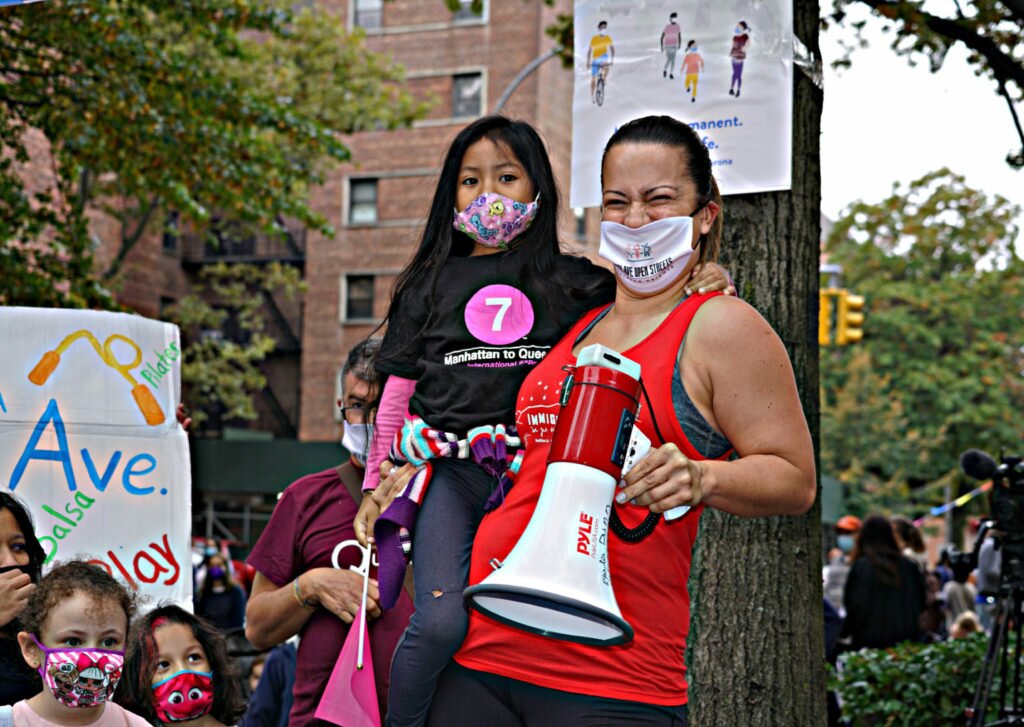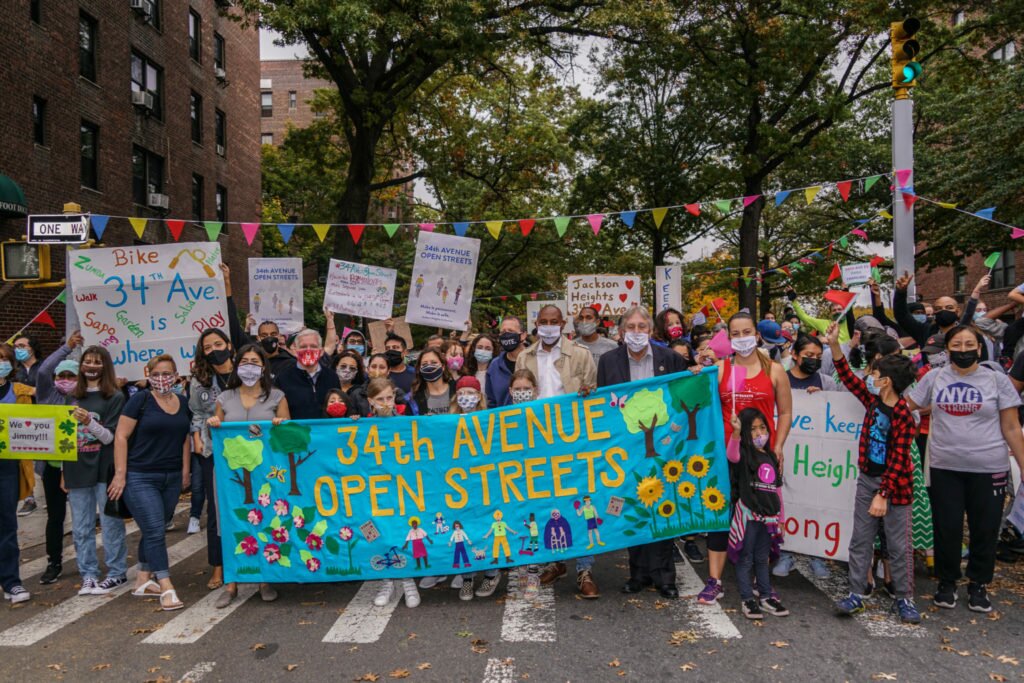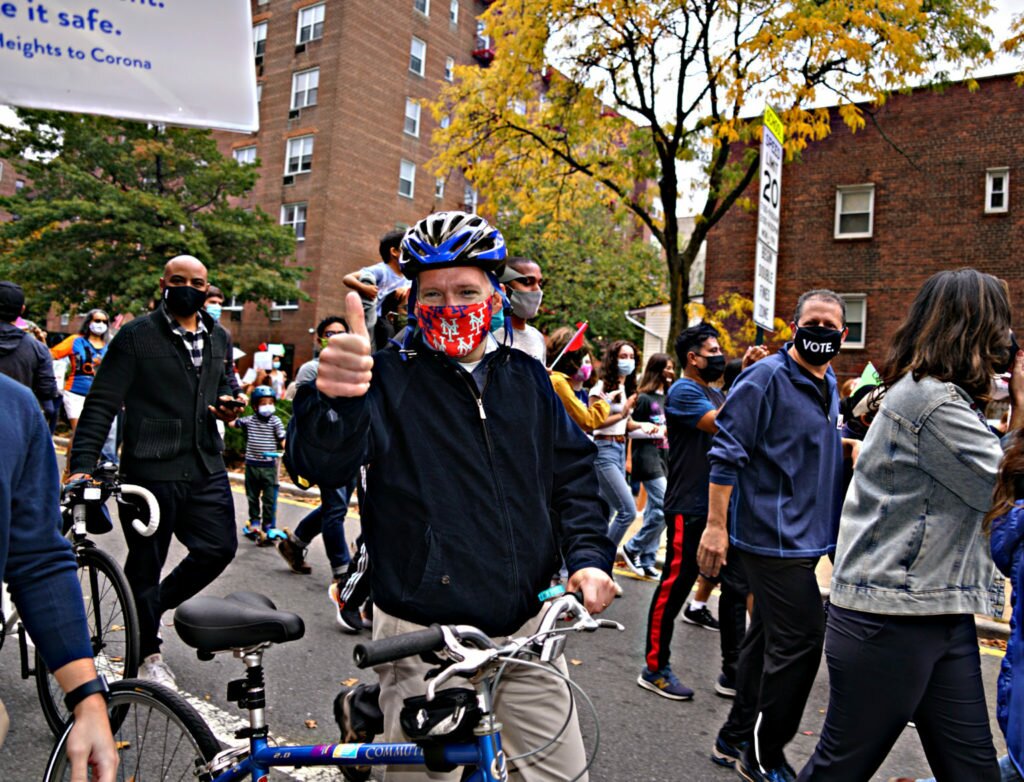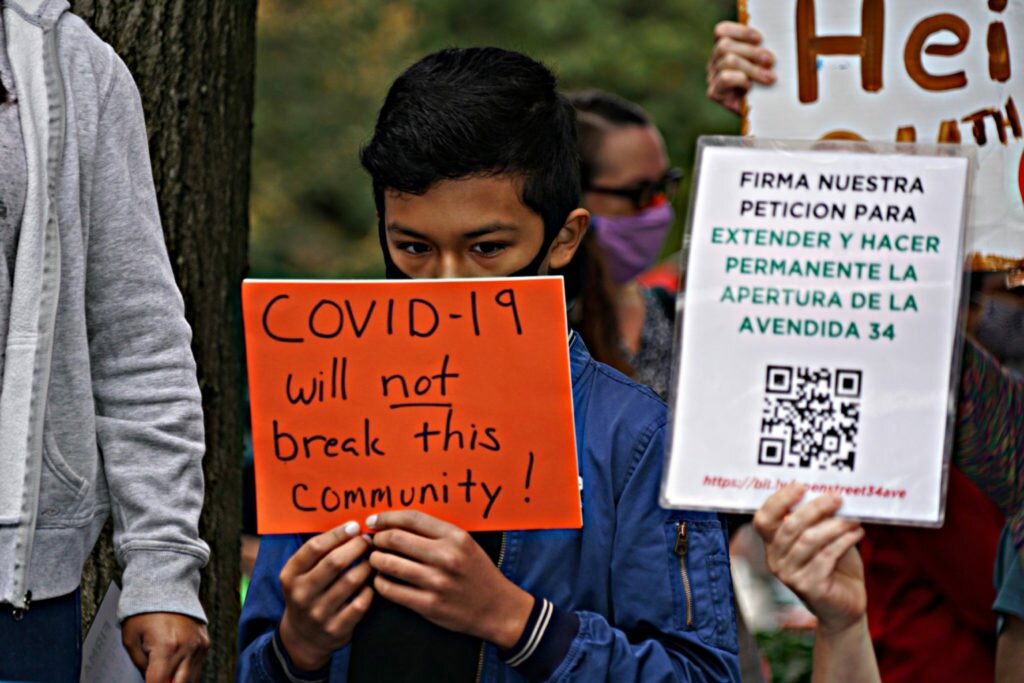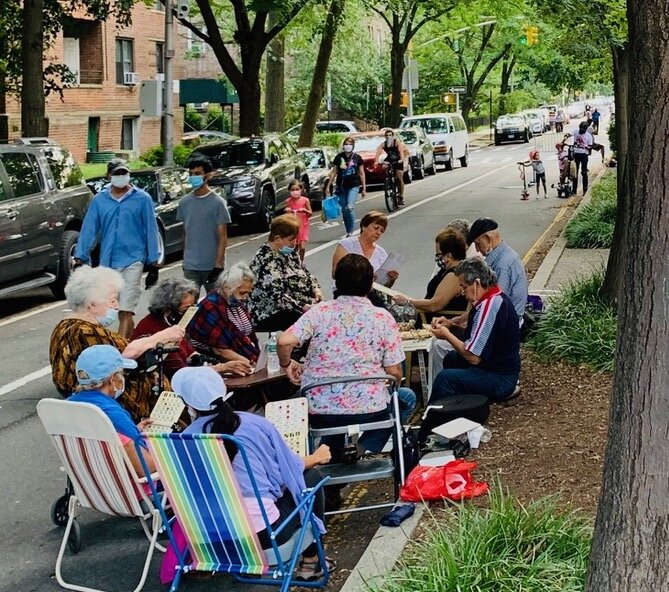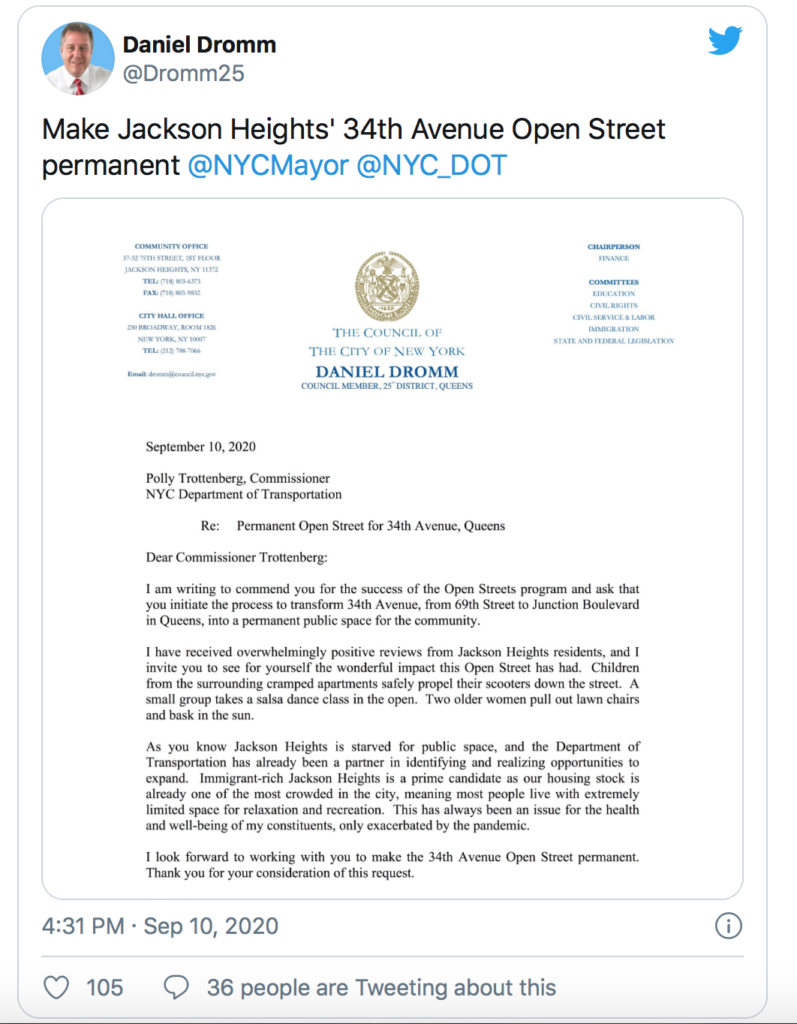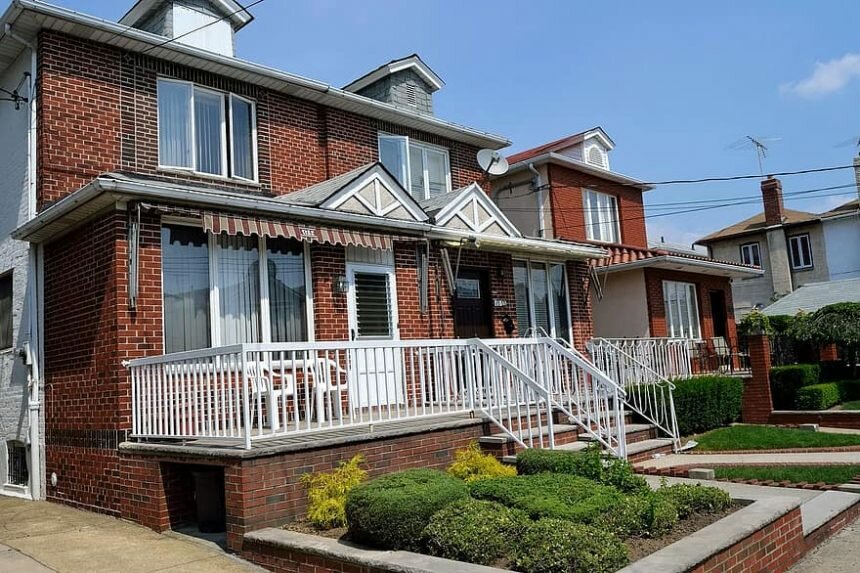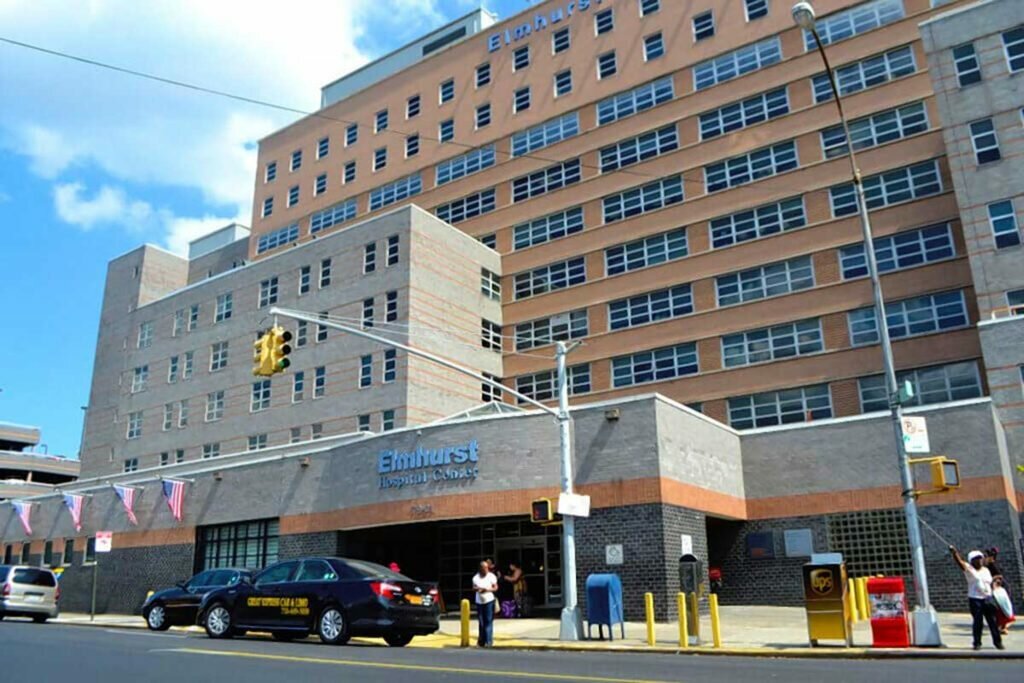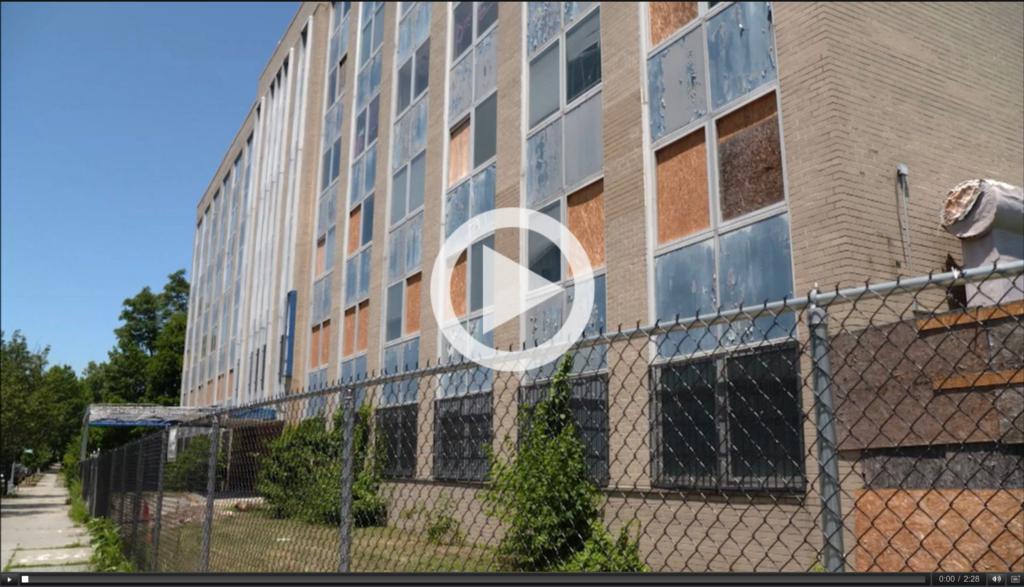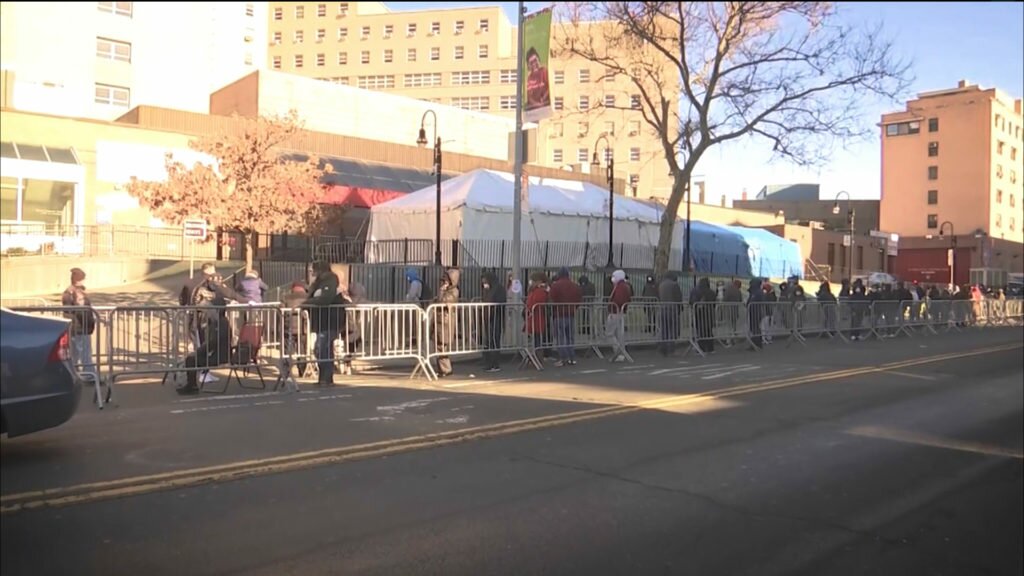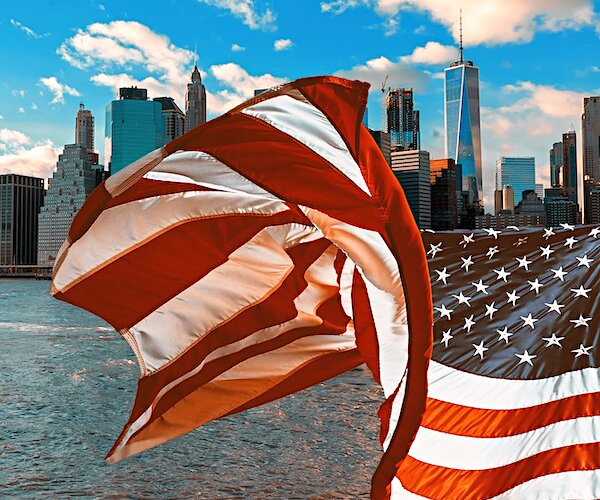By Angélica Acevedo
Originally published in QNS.com on October 27, 2020.
Hundreds of families and local elected officials gathered at the widely popular 34th Avenue Open Street in Jackson Heights, with a mission to demand Mayor Bill de Blasio and the Department of Transportation (DOT) keep the COVID-19 program permanent, on Saturday, Oct. 24.
At the event, during which several Queens and city elected officials showed their support of the idea, they also called for the Open Street on 34th Avenue to be extended to 114th Street in Corona.
For many families in a community that became the “epicenter of the epicenter” during the height of the COVID-19 pandemic, the 34th Avenue Open Street served as a lifeline — especially in a district ranked fifth to last in per capita park space compared to other districts in the city, according to a 2019 report by NYC Comptroller Scott Stringer.
Dawn Siff, a member of the 34th Avenue Open Streets Coalition and co-organizer of Saturday’s rally, said this is the moment to “radically reimagine our streets and who they are for.”
“If we don’t seize this moment to reclaim space for our families, for our children, for our elderly, shame on us,” said Siff. “The 34th Avenue Open Street has changed lives in our community and it is made possible by dozens and dozens of volunteers and by all the members of our community who use it every day, and will not rest until it is permanent and extended.”
The march and rally was hosted by 34th Ave Open Streets Coalition, with the Queens Activist Committee of Transportation Alternatives.
Juan Restrepo, Queens organizer for Transportation Alternatives, said more than 1,600 community members have already signed their petition to make the 34th Avenue Open Street permanent and extend it to Flushing Meadows Corona Park.
“The 34th Avenue Open Street is the crown jewel of New York City’s open street program,” said Restrepo. “We look forward to collaborating with the community and all the elected officials in support of this project to make those goals happen.”
34th Avenue runs from Woodside, through Jackson Heights toward Corona. The 1.3-mile stretch is home to more than half a dozen local public schools, including P.S. 398, I.S. 145, I.S. 230, P.S. 149, P.S. 280 and P.S. 212.
The rally featured speeches from Jackson Heights elected officials, including state Senator Jessica Ramos, Assembly member Catalina Cruz, Assembly candidate Jessica González-Rojas and Councilman Danny Dromm.
“I am proud to have worked closely with the NYC DOT and the de Blasio administration to ensure the permanent closure of 34th Avenue,” said Dromm. “Certain details of what the street will eventually look like remain to be ironed out and the DOT has assured me that community input will be given high priority for the redesign of the avenue. I want to thank the DOT Commissioner Polly Trottenberg and all the advocates Dawn Siff, Nuala O’Doherty, Jim Burke and many others, along with fellow elected officials Senator Jessica Ramos, Assembly member Catalina Cruz, and Democratic Nominee for AD34 Jessica Gonzáles-Rojas, who worked with me to help make this dream come true for our community.”
Other City Council members also attended the rally and march, including Council members Carlina Rivera, Donovan Richards, Jimmy Van Bramer and Brad Lander.
Community members then marched from 34th Avenue and Junction Boulevard to Travers Park.
“Our community has always lacked sufficient green spaces and locations where families can play, exercise and spend time with their friends and neighbors. This was only exacerbated by the isolation we all endured during COVID,” said Cruz. “Having 34th Avenue be accessible to families all around Jackson Heights, Corona, and the surrounding neighborhoods have been key in keeping many of us healthy and safe during a very tough time.”
The day also had activities for kids, street performers, music and exercise classes, as well as bake sale so participants could experience the flavor of 34th Avenue Open Street.
Dasia Iannoli, a 7-year-old resident of 34th Avenue in Jackson Heights, said she loves 34th Avenue’s Open Street.
“I live on 34th Avenue and I love Open Streets because I get to bicycle and play and roller skate and scoot and play soccer and basketball and tennis and badminton with my friends and stay safe. 34th Ave. is the best place to be,” said Iannoli. “Please keep 34th Ave. open.”
On Oct. 23, the DOT said the city will keep the 34th Avenue Open Street program going while they look into a plan for its “long-term” transformation.
The DOT revealed it will present a plan to keep the street permanent at a Community Board 3 committee on Wednesday, Oct. 28, according to Streetsblog.
Ramos, a fierce advocate for the 34th Avenue Open Street program, said the city needs to “transform the way we are using our streets.”
“Streets are for people, not cars! The more we talk about climate change and how to better protect our communities, we must begin taking concrete steps to reverse car culture. Making 34th Avenue Open Streets permanent and extending it further is step number one,” said Ramos. “I am also here as a resident and mother to say that 34th Avenue Open Street changed my life. It allowed me and my kids to practice and learn how to bike in a safe space. Honored to stand with just about every community activist in our district to call upon the mayor to make it official and keep 34th Avenue open for our families.”
Read more here.

